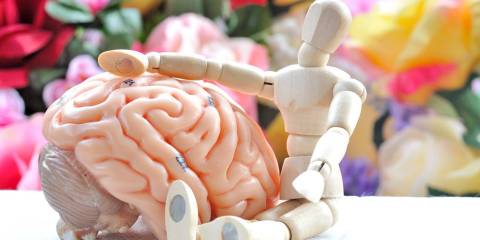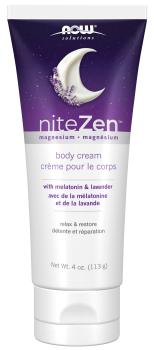Background
Alzheimer’s is a common form of dementia (senility) affecting almost 5 million Americans. As our population ages, this is an area that drug companies believe may be quite profitable, so there is heavy advertising being done for the medication Aricept, which has very minimal to modest benefit.
There is also a promising new medication for Alzheimer’s that can stop it in its tracks (well, really an old natural compound that a drug company will try to pass off as new).
Misdiagnosis
The only definitive test for diagnosing Alzheimer’s is a brain biopsy, which appropriately is not done. Because of this, and because most doctors do not have time to do a proper 30-60 minute evaluation for underlying causes (Medicare pays poorly for visits over about 5 minutes), many elderly folks get a label of Alzheimer’s slapped on them and a prescription for Aricept at first sign of confusion, and perhaps a cursory look for other causes of confusion.
It's no surprise that a recent study showed that the majority of people diagnosed with Alzheimer's don't actually have the illness — and often have a very treatable problem that is being missed!
With a thorough exam, we frequently find that the person doesn't have Alzheimer’s, and that even if they do, even modest improvements in mental function can dramatically improve their ability to function and remember names and people.
Also, for those of you with day to day “brain fog” wondering if you may have Alzheimer’s, a simple rule of thumb: Alzheimer’s is not when you keep forgetting where you left the keys. It’s when you forget how to USE the keys.
Screening for Dementia
Begin with a "brain tune up," which may make the dementia go away.
A helpful mnemonic for the tune up is the word "DEMENTIA," which can stand for:
-
Drugs
Get rid of the ones that are not essential. If you or I were on the 10 to 15 drugs many elderly are on, we'd be arrested for DWI!
-
Emotional
Rule out depression and make sure the person gets adequate sleep.
-
Metabolic
Hormonal deficiencies, especially thyroid and testosterone, dramatically increase risk of Alzheimer's even with normal blood tests.
These hormones need to be optimized—even if the tests are "normal."
-
Ears and Eyes
Hearing and vision loss can mimic dementia. Get these checked.
-
Nutrition
Give optimal nutritional support with a good multivitamin powder.
Make sure vitamin B12 levels are over 540 and ferritin and iron levels (as measured through a "ferritin" blood test) are over 60.
Add herbal support with a highly absorbed curcumin.
-
Tumors and Other Brain Lesions
An MRI or CT scan is appropriate if one is diagnosed with dementia.
-
Infections
Urine, Candida, and sinus infections can drag down mental function.
-
Anemia
Anemia and other overt medical problems.
A simplified mnemonic (using the above info) is MIND.
Treating and Managing Alzheimer's
Recommended Supplements
-
Vitamin B12 Injections
- Check your vitamin B12 level. Anything over 209 is “normal” but NOT necessarily acceptable.
- If it is under 540, get a series of at least 15 B12 shots over several months (make sure the injections have 1,000-5,000 mcg of B12 per injection).
- If it's under 350, take the shots monthly forever, and add 1 teaspoon of cider vinegar to each meal (as convenient, such as in a salad dressing) as low B12 is usually associated with low stomach acid, and the vinegar can help digestion.
-
Multivitamin Supplement
Supply overall nutritional support with a good multi-nutrient powder (one that includes a strong B complex vitamin, which can take care of the low B12 if your doctor won’t give the injections).
-
Curcumin
This is the spice in Indian food that makes curry yellow, and high intake in India is associated with a 70% lower risk of Alzheimer's.
It is very promising, now that there is a new form that is highly absorbed (CuraMed by EuroPharma) — this means taking 1-2 a day instead of 15 of the next best form to get the same effect.
-
Fish Oil
Consume fish oil, either by eating 3-4+ servings of tuna, herring, or salmon each week, or by taking a tablespoon of fish oil twice a week. The brain is made of the oil found in fish oil (DHA).
This can also help treat any hidden depression which may be present.
Other Therapies & Advice
-
Hormonal Deficiencies
Treat hormonal deficiencies, even if your blood tests are normal.
-
Armour Thyroid Prescription
Armour Thyroid should be tried by those experiencing unexplained chronic confusion to see if it helps. A thyroid test even on the low side in the normal range in women was associated with more than a doubled risk of developing dementia!
-
Natural Testosterone Cream
Men with total testosterone under 400 should use natural testosterone cream to raise their total testosterone level to about 600-800.
Testosterone topical gel used in the natural form and in safe dosages (25-50 mg a day) is associated with a lower risk of heart disease and diabetes risk and does NOT increase prostate cancer risk (in fact, low testosterone is associated with a higher risk of prostate cancer).
-
Aspirin
Consider a trial of 1 aspirin a day. Much of what is called Alzheimer’s is really the result of multiple small mini-strokes. This is especially likely if the progression of mind problems seemed to occur in discrete small steps (worsening with each small silent stroke).
An aspirin a day (or, if aspirin bothers your stomach, willow bark — found in health food stores, 120 mg of salicin a day) can decrease the risk of further strokes and often will improve function.
-
Sleep
Get 8 hours of sleep a day. Begin with Melatonin 3-5 mg at bedtime (1/2 mg is normally recommended, but use the higher dose in this setting). If needed, add an herbal sleep aid at bedtime.
-
Depression
Make sure there is no depression (which can mimic Alzheimer’s).
-
Infections
Look for and eliminate any chronic infections (e.g., silent bladder infections seen on a urine culture; or bowel yeast overgrowth — which is suggested by increased gas or clearing one’s throat a lot).
-
Check Your Medications
Look for excess medications (or excess alcohol) that could contribute to confusion, and see if the doctor will work with you to leave each medication off for 2-3 days (if able) to see if the mind clears.
It often will, as you eliminate many unnecessary medications that have simply accumulated over time and are no longer really needed.
-
Anti-Aging Supplements
Anti-aging supplements that help prevent memory loss can help.
Importantly, the product "Remember" has been shown to be twice as effective as Aricept, and has in some cases stopped Alzheimer’s progression in its tracks. It is simply old fashioned methylene blue.
It won’t be available in your pharmacy for several years but is available now from compounding pharmacies (see Alzheimer link below).





